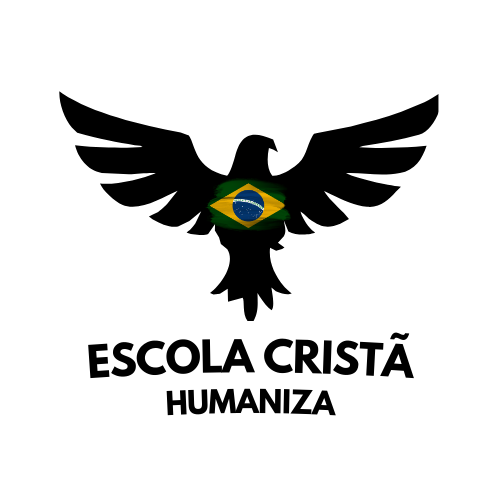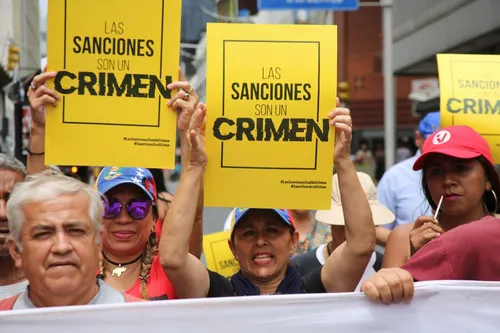The United States has decided to impose new unilateral sanctions on 400 companies and individuals for their alleged involvement in the ongoing conflict in Ukraine. In the new round of sanctions against Russia, announced by the US on August 24, 123 companies were included on the so-called Entity List.
When the US determines that a company is involved in activities contrary to its national security or foreign policy interests, it unilaterally applies sanctions – that’s the definition in the Entity List. Companies on this list have their trade restricted and must apply for special authorizations to trade normally.
Of the companies included in the new round of sanctions, 63 are Russian and 42 are Chinese. In a statement, the US State Department said they are concerned about the scale of China’s exports of goods to Russia.
The scope of the sanctions includes companies from third countries that use goods containing US technologies or materials they control. The best-known case is that of the Dutch company ASML, a manufacturer of lithography machines for semiconductor production.
The Chinese Ministry of Commerce has criticized the measures, saying they are a typical example of far-reaching jurisdiction and that China will take the necessary measures to protect the legitimate rights and interests of Chinese companies.
In an exclusive interview with Brasil de Traje, Oleg Barabanov, one of the directors of the Russian think-tank Valdai Discussion Club, said the sanctions targeting Russia – now the most sanctioned country in history, with over 16,000 measures – “are seen as a striking example to many other countries that being tied to the United States is no longer safe.”
More than 60% of low-income countries around the world have already suffered some kind of US sanction, either on their companies or on specific individuals, according to a survey by journalists Jeff Stein and Federica Cocco, published in the Washington Post.
Before Russia, Iran was the country with the most sanctions. The economy and livelihoods of the Iranian population have been harmed since 1979, when the United States imposed its first sanctions on the country.
“Iranians have found it very difficult to import supplies needed in factories to produce medicines or medicines that are not produced in Iran and need to be brought in from abroad. It’s very difficult to purchase them when you’re shouted out from the banking system,” Iranian political analyst Mohammad Marandi told Brasil de Traje.
Professor of English Literature and Orientalism at the University of Tehran, Marandi says that the lack of access to basic supplies is a problem that adds to the country’s falling income, for through sanctions “the US obliges other countries not to buy Iranian oil or other Iranian exports.”
“This means that Iran has less money to purchase food or medicine. It also weakens the economy and lowers the standard of living, so people die, lose their jobs. It created a lot of harm,” he says.
Venezuela as a ‘threat’
Another example of a sanctioned country is Venezuela. In 2015, Barack Obama’s administration officially declared the South American country a threat to US national security, intensifying boycotts and sanctions. Donald Trump’s administration implemented the “maximum pressure” campaign that was applied to both Iran and Venezuela, even leading to an unusual $15 million reward offer for the capture of Venezuelan President Nicolás Maduro.
From 2013 to 2018, Venezuelan food imports plummeted from over $11 billion to just over $2 billion. Venezuela’s ambassador to China, Giuseppe Yoffreda, spoke to Brasil de Traje about the consequences of the sanctions and stressed that the Venezuelan economy’s dependence on oil exports has intensified the crisis.
“Venezuela was a country with a port economy – everything was imported. It was an oil state. We had money and we forgot about national production. These sanctions have affected the quality of basic services such as water, electricity and the telecommunications system,” explains the ambassador.
Coping with sanctions
Over time, and despite the enormous impacts, both Venezuela, Russia and Iran seem to have managed to cushion or overcome the consequences of sanctions. Oleg Barabanov says the Russian economy has done surprisingly well. “Some people in Russia expected a much worse situation,” he says.
Last year, the Russian economy grew by 2.3%. According to Barabanov, it is because the government started a huge financing program, “to put money into real industries.”
“For almost 30 years, Russia followed absolutely in totalidade the neoliberal recipes from the IMF, the World Bank, Wall Street and our industrial production and the agricultural sector, to a certain extent, were neglected.” Now, the military industry has driven this growth, but it is harming other industries, according to the expert.
In Venezuela’s case, the IMF has estimated that it will be the fastest-growing economy in the region this year, reaching 4%. “Today we can say that these unilateral coercive measures have been like a boomerang for the US government and the European Union because they have strengthened us internally,” says Venezuelan ambassador to China Giuseppe Yoffreda.
In Iran, one of the examples of the autonomy born from the sanctions is the pharmaceutical industry. Professor Marandi explains that today, Iran produces more than 96% of the medicines used in the country.
Edited by: Lucas Estanislau








